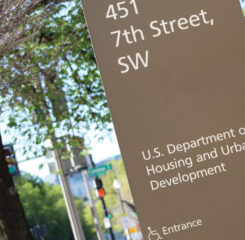New Remedies Protect Nursing Mothers
On Dec. 29, 2022, the Providing Urgent Maternal Protections for Nursing Mothers Act (“PUMP Act”) became law, extending right-to-pump protections under the federal Fair Labor Standards Act (“FLSA”) to additional workers and providing employees access to additional remedies for violations. The extended coverage became effective upon enactment of the law, and the additional remedies are effective April 28, 2023.
Coverage Extended
The right to pump breast milk at work has been available to covered employees under the FLSA since 2010, but the PUMP Act extends these federal protections to many more workers. This is because the pump at work protections originally were added to the section of the FLSA providing overtime protections, meaning that employees who were exempt from overtime were also exempt from the break time and space requirements for nursing employees.
The PUMP Act moved these provisions to a new section of the FLSA, and the result of this change is that most workers who were previously exempt from the pump at work protections are now covered by them. Thus, under the PUMP ACT, nearly all FLSA-covered employees have the right to take needed time, and to access an appropriate space to express breast milk for a nursing child, for up to one year after the child’s birth.
While the PUMP Act extended eligibility to more employees as of Dec. 29, 2022, it did not change the break time and space requirements of the law. Note, however, that these federal pump at work protections do not preempt a state law or municipal ordinance that provides greater protections to employees than those provided by the FLSA.
Employee May File Private Right of Action Seeking Remedies for Violations
The PUMP Act also provides covered employees with increased access to remedies. Beginning April 28, 2023, an employer who violates an employee’s right to reasonable break time and space to pump breast milk is subject to liability for legal or equitable remedies under the FLSA, regardless of whether the employee has also experienced retaliation.
An employee may file a complaint with the Wage and Hour Division or may file a private cause of action seeking appropriate remedies.
Special notification procedures may apply to an employee’s filing a private action where an employer has failed to provide an employee with an appropriate space to pump. Before an employee can file a private suit regarding an employer’s failure to provide an appropriate space, the employee must notify the employer of the failure to provide the required space and allow ten days for the employer to come into compliance. This notice requirement does not apply if the worker has been fired for requesting reasonable break time or space, or for opposing employer conduct related to the requirements, or where the employer has expressed a refusal to comply.
Additional Information is Available
Employers should review their policies to ensure they reflect the PUMP Act amendments to the Fair Labor Standards Act. The U.S. Department of Labor, Wage and Hour Division, has posted several resources concerning these issues, including a fact sheet, frequently asked questions, and a one hour recorded webinar: The PUMP for Nursing Mothers Act: What Advocates and Employers Need to Know.

Most Recommended
October 15, 2025
 Shutdown Week Three: Impact of Ongoing Closure on Affordable Housing
Shutdown Week Three: Impact of Ongoing Closure on Affordable Housing
February 03, 2026
Fiscal Year (FY) Funding 2026
October 07, 2025
Immigrant Workforce Matching Program Brings Workforce Relief
Recently Added
February 10, 2026
 HUD Streamlines Section 202 PRAC Budget Approvals
HUD Streamlines Section 202 PRAC Budget Approvals
February 10, 2026



